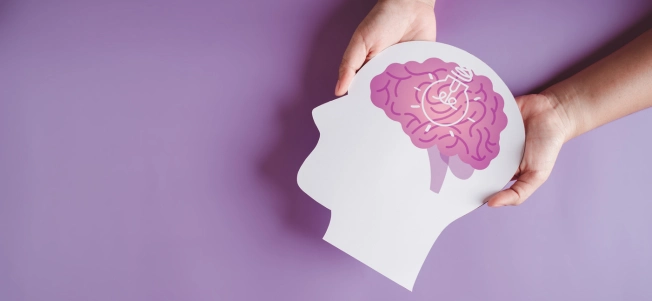Pineal Gland Problems? Here’s What’s Going On—and How to Support It Naturally

If you're struggling with poor sleep, low energy, or a foggy brain that just won’t clear up, your pineal gland might be part of the problem—and most people have never even heard of it.
This small gland deep in the brain plays a big role in your overall health. And when it’s not working the way it should, it can throw off everything from your sleep to your immune system.
In this post, we’ll break down what the pineal gland does, why it gets sluggish, and how to support it naturally—including a look at a supplement called Pineal Guardian that may help.
What Is the Pineal Gland, and Why Should You Care?
The pineal gland is a tiny, pea-sized part of your brain that’s best known for making melatonin—the hormone that helps regulate your sleep-wake cycle. But it also plays a role in things like immune function, mood, and brain clarity.
When your pineal gland is healthy, your body can better manage rest, stress, and daily rhythm. But if it’s not working properly, you may find yourself feeling off—even if everything else seems "fine" on paper.
The Real Problem: Pineal Gland Calcification
Here’s the thing most people don’t know: the pineal gland is prone to calcification, which means tiny calcium deposits build up over time and interfere with how well it works.
This can happen due to aging, environmental toxins, fluoride exposure, and even certain foods. And while it sounds scary, it’s actually very common—and something you can do something about.
Signs your pineal gland might not be working well:
Poor sleep or waking up tired
Brain fog and low focus
Mood swings or low motivation
Hormonal imbalance or disrupted rhythms
Natural Ways to Support Your Pineal Gland
The good news is, there are simple steps you can take to give your pineal gland the support it needs.
1. Get Some Real Sunlight
Natural light helps regulate melatonin levels and keeps your sleep-wake cycle on track. Aim for at least 15–30 minutes of daylight each day.
2. Clean Up Your Diet
Reduce processed foods and eat more plants—especially dark leafy greens, berries, and herbs with natural antioxidants. These help your body fight the buildup that contributes to calcification.
3. Limit Toxins When You Can
There’s growing research suggesting that too much fluoride or certain chemicals may play a role in pineal gland issues. Filter your water if possible, and be mindful of what you’re putting into your body.
How Pineal Guardian May Help
If you want a natural supplement to support your pineal gland alongside lifestyle changes, Pineal Guardian is worth a look.
👉 Take a look at Pineal Guardian here.
What is it?
Pineal Guardian is a nutritional supplement made with plant-based ingredients designed to help reduce calcification, support melatonin production, and improve clarity and focus.
It includes natural compounds that are known to:
Fight inflammation
Promote detoxification
Encourage hormonal balance
Support restful sleep
Many users report better sleep, sharper thinking, and improved mood after regular use.
It’s non-GMO, made with natural ingredients, and doesn’t rely on stimulants or harsh additives.
The Takeaway: Support Your Pineal Gland, Support Your Health
We spend a lot of time focused on diet, workouts, or supplements for weight or energy—but not enough people talk about supporting the tiny systems behind the scenes like the pineal gland.
Your body already wants to be in balance. Sometimes, it just needs a little help.
By focusing on your sleep, sunlight, diet, and potentially adding support like Pineal Guardian, you’re giving your brain and body a much better shot at functioning the way they were designed to.
Want more simple, science-backed ways to feel better?
Explore the rest of the Healthy Body section for practical tips and trusted advice—no extremes, no overwhelm, just real support for your wellness journey.
Disclosure: Some of the links on this site may be affiliate links, which means we may earn a small commission—at no extra cost to you—if you make a purchase. This content is for informational purposes only and is not intended as financial or medical advice.
